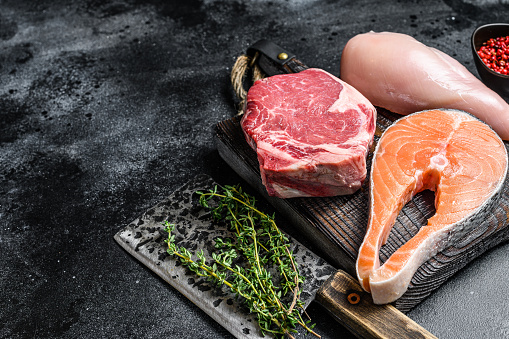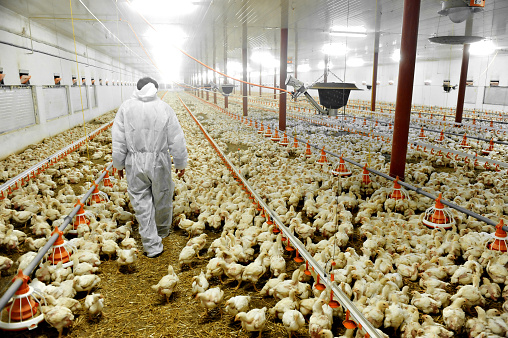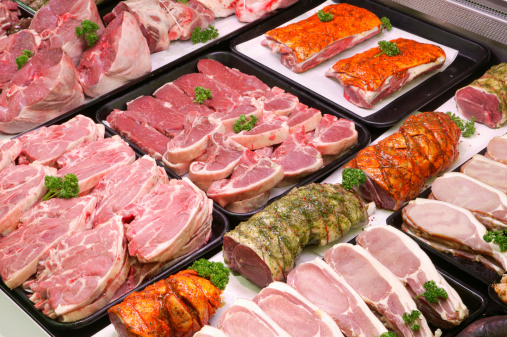Is Meat/Poultry/Fish A Good Career Path?
What do you do with your degree in Meat, Poultry, and Fish Processing? Are there any jobs out there? What is the average salary? Where can I find my dream job? This blog will address all of these questions and more. Is meat/poultry/fish the right career path for you? Read on to find out… (more content follows)
Is Meat/Poultry/Fish A Good Career Path
For many people, choosing what career path to take can be difficult. Is meat/poultry/fish a good career path? To start with, there are several benefits and disadvantages of choosing to pursue this type of job as your career. The following are some reasons why you should consider pursuing this career and some reasons you might want to think twice about it before making the leap into the world of meat/poultry/fish production or processing.
Pros of working in meat/poultry/fish industries
Pros of working in the Meat, Poultry, and Fish industries are that there is a wide variety of jobs within these industries to choose from. The work varies depending on what animal you focus on as well as what type of processing you do. In some cases, you may be packing up food items or producing more processed products, while other times, you might be part of the butchering process by preparing portions of meat.
One major pro to this industry is the hours are flexible, which allows for a better balance between your professional and personal life when needed. Employees can also take advantage of an array of benefits offered through this industry, such as paid vacation time and short-term disability insurance if desired.
Cons of working in meat/poultry/fish industries
The average food processing salary is $14.24 per hour. Many people do not want to work with live animals in their jobs because they would be performing slaughtering or butchering tasks at the plant. The air quality and conditions in these plants are some of the worst in any manufacturing industry in the United States.
Employees risk developing diseases such as Creutzfeldt-Jakob disease, which is similar to mad cow disease, as well as other occupational hazards that lead to cumulative trauma disorders or musculoskeletal problems from repetitive motion. Many people who work with these products deal with significant pain from being exposed to chemicals like ammonia without adequate protection from gloves or respirators while they process meat and poultry products day after day.

Job outlook, environment and pay
The industry has high unemployment rates, but most of the available jobs are working in slaughterhouses. Meat is not only difficult to prepare, but also goes bad quickly. The pay for this job depends on the size of the company and if you are willing to work long hours (which most people are). The environment is hectic and smells bad, plus it can be physically demanding.
Why do you want to work in this industry?
You should work in the industry because you will enjoy the scientific component of cooking and also because you will have no formal training in any other industries. Plus, according to some sources, this is an industry with lots of opportunities for someone with no degree to start off their own business without too much capital investment.
Current job openings and future growth potential
The US Department of Labor estimates that by 2024, food industry careers will grow 18% faster than the national average. Other factors like globalization and an aging population will also contribute to the need for more food workers. If you want to work in the food industry, there are many careers available to you!
What degree will I need to succeed?
To answer this question, it is first important to know what type of job you are looking for. If you’re looking for an entry-level position as an animal caretaker, for example, your educational requirements will be lower than if you’re seeking employment in research and development. The Bureau of Labor Statistics estimates that only about 12% of those working in the livestock industry need a four-year degree to complete their current jobs. Most workers in the field possess an associate’s degree or less.

What type of training will I get from my employer?
The training you’ll receive from your employer will depend on the type of work you’re being hired to do. Meat Packers and Trimmers get trained by their employers about the USDA guidelines for packaging, labeling, product storage and tracking. This information will help them be successful in their jobs. Job duties for poultry workers include keeping sanitary conditions and equipment clean, processing chickens (which includes breaking down chickens into their individual parts), inspecting the quality of products, and monitoring process time to ensure food safety standards are met.
Will I be able to move up in my career?
Salary is dependent on the type of company you work for and the position you hold, so it’s important to research that as well. Entry-level employees can expect an average salary of around $30,000 per year. The following is a typical salary range by occupation. Chef- $35k-$150k Executive Chef- $75k-$100k General Manager- $60k-$200k Restaurateur- $25K-$300K
How do I know if this is the right fit for me?
It can be hard to know if you’re meant to work in the animal agriculture industry. It’s important to take some time and figure out if it’s something you’re passionate about, whether it just seems like the right fit for your skillset, or even if you have family in the industry that have encouraged you to follow in their footsteps.

What certifications will I need to start out?
You’ll need to pass food safety training and learn more about the industry by working with somebody who is experienced in it. The most popular certifications include HAACP (Hazard Analysis Critical Control Point) and AIBSP (American Institute of Baking & Supplier). The USDA also has some helpful online resources for individuals looking to work in this field. For those just starting out, though, an internship is a great way to gain experience and get ahead in the industry.
Also Read:
What Are Some Advantages of Walmart Purchasing Established Web Businesses
How to Start a Trailer Rental Business in 8 Easy Steps
How to Start a Curb Address Painting Business


